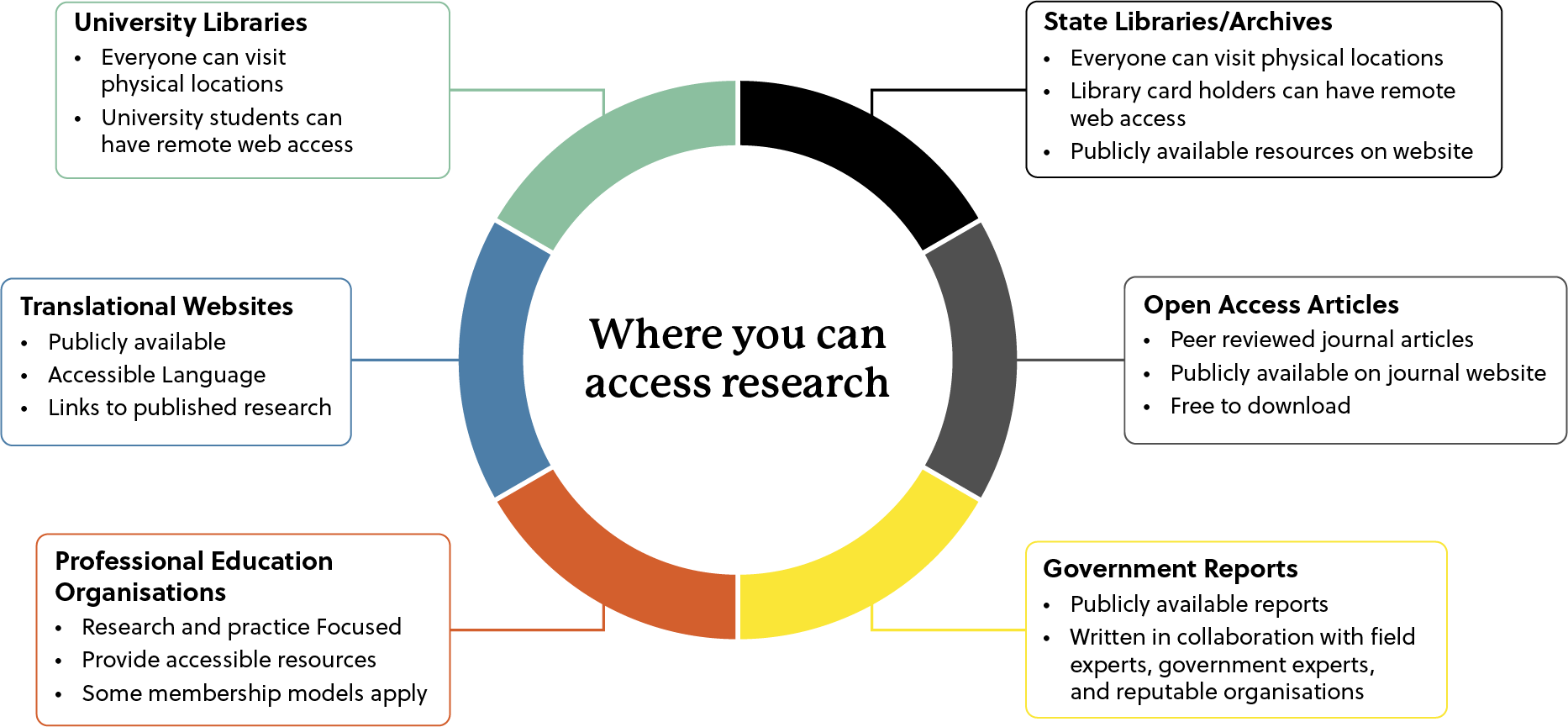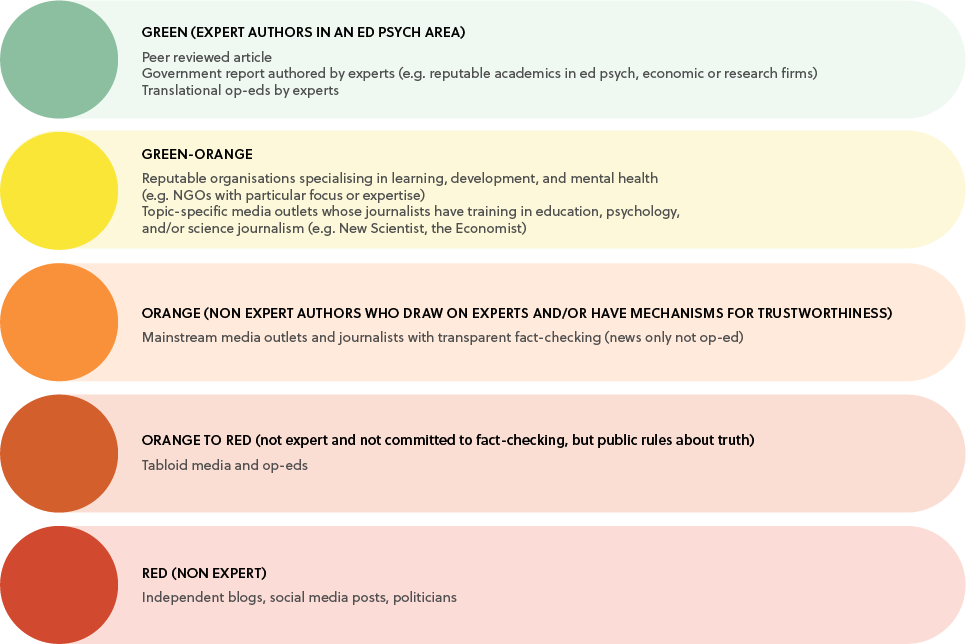Accessing Research

Assessing Quality of Research

Indicator of Quality
Where Information Can be Found
*If unsure of what these sections refer to, see Dissecting article section
Important Considerations
Is the research reported in a reputable outlet?
Reputable outlets include:
- An article in a reputable journal. Check if the journal is listed as Q1 (green box) or Q2 (yellow box) on Scimago.
- A government report
- A report released by a reputable organisation (e.g., Mission Australia, The Black Dog Institute, OECD, etc.).
Research is referenced on reliable media outlets, such as major new organisations, The Conversation, Teacher Magazine, etc.? (reminder, if possible, to access the original research).
Abstract
Introduction
End of the Literature Review
The research should have clear and easily identifiable research questions/hypotheses.
The research aims should clearly align with the questions/hypotheses.
Do the authors reference other reputable resources?
Authors should be using other peer reviewed research to support their own.
Consider their reference list with the same criteria as that related to assessing if it a reputable outlet.
No reference list is a red flag of unreliable research.
Abstract
Methods
This will vary based on the methods used. There are general rules of thumbs that can be applied to ensure the findings of this research may generalise to your situation.
- Qualitative studies, such as interviews and focus groups: around 10+ people.
- Non-experimental Quantitative studies: around 100+ people.
- Experimental Quantitative studies: XXX
Mixed methods studies: around 50+ people
Methods
The aims should indicate if the study is meant to focus on a specific group or the be representative of the broader population.
The sample characteristics should match these aims.
Are any research instruments valid and reliable for the participants of this study?
Methods
Qualitative research: the authors should report the “interrater reliability” in some capacity
Quantitative research: the authors should report if the instruments are reliable (via estimates of Cronbach’s alpha, coefficient omega, or ICC2). The authors should also indicate if the instrument has been used successfully in previous research
Abstract
Discussion
The claims made should directly address the research questions and hypotheses.
The claims can extrapolate from the data, but these claims should be circumspect
The old adage applies here: “if it sounds to good to be true, it probably is.”
Handy Links for Accessing Research
State/National Libraries and Archives
(examples, not exhaustive)
Africa: National Library of Nigeria, Egyptian National Library and Archives, National Library of South Africa, National Archives of Zimbabwe
Asia: National Library of China, Hong Kong Central Library, National Library of India, National Library of Indonesia, National Library of Israel, National Library of Iran, National Library of Korea
North America: Library of Congress, New York Public Library, Library and Archives Canada
Oceania: National and State Libraries Australasia, NSW State Library, VIC State Library, New Zealand National Library
South America: National Library of Chile, National Library of Brazil, National Library of Mexico
UK/Europe: Royal Library, Denmark, National Library of France, German National Library, British Library, National Library of Greece
Peer Reviewed Journals with Open Access Articles.
Journals are Educational Psychology Journals, Developmental Psychology Journals, Psychology Journals that Publish Education Relevant Research, and General Education Journals that Publish Psychology
Please note that all journals have a different focus. We provide the impact factor as one indicator of quality, but journals vary substantially in their area of focus. Finding research relevant to your question(s) is important to consider alongside impact factor.
Journal Title
Impact Factor, as of 2021
(scores updated regularly)
Can’t find access the article that you are interested in?
Email the author to ask for a copy or use Open Access Button
Translational Outlets and Professional Organisations
Australian Association for Educational Research
Australian Council for Educational Research
The Conversation (multiple country specific versions)
Search Term Tips
- University Library Catalouges (which includes databases such as ERIC and APA Psychnet), National/State Library Catalogues, or Google Scholar is recommended.
- Use advanced search wherever possible. This helps the search engine look for combination of terms more efficiently.
- Think of how your topic is referred to in different ways.
- Examples: metacognition and self-regulation; self-efficacy and confidence; retention, recall, processing.
- Consider if you want to know about a specific age group, (primary vs secondary), context (in-school, museum, etc), or subject (science, history, etc).